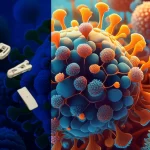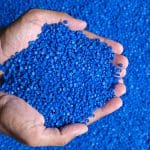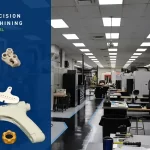Which thermoplastics are best suited for your machined medical application?
With over three decades of experience machining precision plastic and composite parts for the Medical & Life Sciences industry, AIP Precision Machining knows that biocompatible, sterilization-compatible and lightweight materials are critical for medical devices and surgical components. That’s why we’ve carefully selected, machined and tested all our thermoplastic materials to various ISO medical standards and performance considerations.
Here are eight examples of thermoplastics we commonly machine for the Medical & Life Sciences industry.
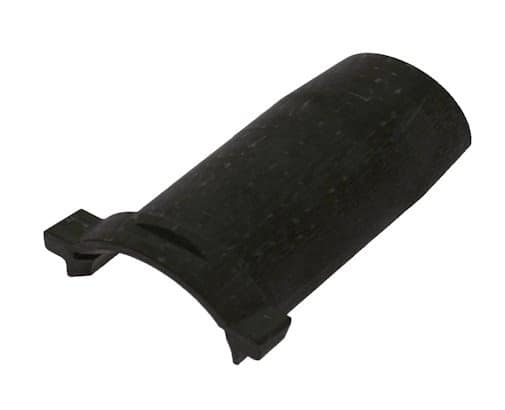
PEEK
PEEK (Polyetheretherketone) has biocompatibility in its medical grades per ISO 10993. In particular, PEEK Optima and Zeniva PEEK are suitable for long term implants and have a uniquely similar modulus to that of human cortical bone. PEEK is radiolucent and also used for dental implants and various medical instruments. PEEK can be used continuously to 480°F (250°C) and in hot water or steam without permanent loss in physical properties. For hostile environments, PEEK is a high strength alternative to fluoropolymers. PEEK is an increasingly popular replacement for metal in the medical industry due to its lightweight nature, mechanical strength, radiolucent properties, creep and fatigue resistance, as well as its ease in processing.
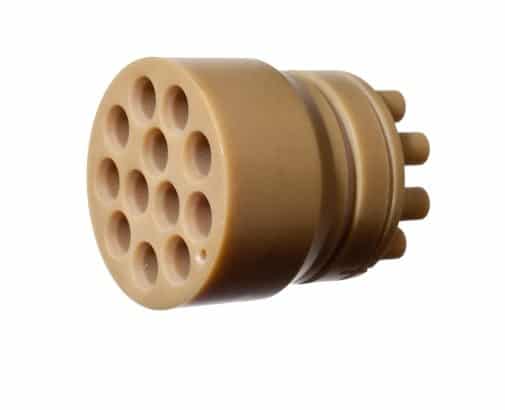
ULTEM – PEI
ULTEM PEI (Polyetherimide) is popularly used in medical instrument components, devices and pharmaceutical applications. Medical-grades of PEI are biocompatible per 10993. Not only is ULTEM steam, gamma, EtO and E-beam sterilizable, but it’s also hydrolysis resistant. Being resistant to both hot water and steam, ULTEM can withstand repeated cycles in a steam autoclave and can operate in high service temperature environments (340F or 170C). This makes it especially suitable for reusable medical devices. ULTEM also has one of the lowest rates of thermal conductivity and very high dielectric strength, allowing parts machined from ULTEM to act as thermal insulators. ULTEM however can be consider more brittle than a PEEK or RADEL, therefore it should be avoided for applications experiencing high rates of impact forces.
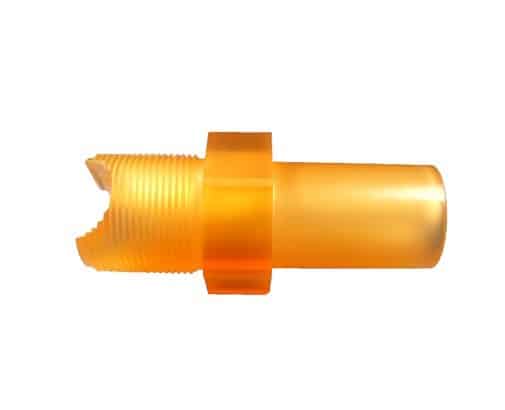
Polysulfone – PSU
Polysulfone (PSU) maintains a consistent modulus in temperatures ranging from -150°F (-100°C) to 300°F (150°C). PSU also exhibits excellent radiation stability, maintains high resistance to acidic and salt solutions, and is hydrolysis-resistant for continuous use in hot water and steam at temperatures up to 300°F (150°C). It’s capable of experiencing repeated autoclaving, but not as many as PEI, PEEK or PPSU. These qualities make it applicable for analytical instrumentation, medical devices and steam-cleaning equipment. In thin cross sections PSU is nearly clear, providing a window like finish with improved chemical resistance to that of PMMA or PC.
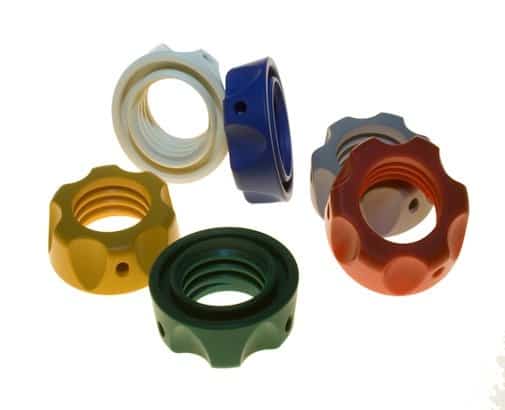
RADEL – PPSU
RADEL PPSU (Polyphenylsulfone) has been tested for notched izod impact resistance as high as 13 ft.-lbs/in. With high heat and high impact performance, RADEL delivers better impact resistance and chemical resistance than other sulfone-based polymers, such as PSU and PEI. Its toughness and long-term hydrolytic stability mean it performs well even under autoclave pressure. In fact, PPSU has virtually unlimited steam autoclave resistance, making it appropriate for machining reusable medical instruments. When thermal considerations are not extreme, RADEL provides for a less expensive alternative to PEEK. RADEL is also available in numerous color options, making a great choice for hip and knee sizing trials.
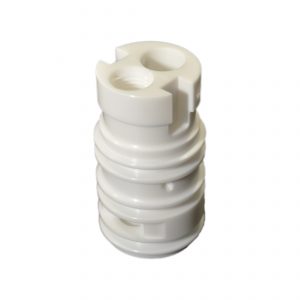
UHMWPE
UHMW-PE (Ultra-High Molecular Weight Polyethylene) is a linear, low-pressure polyethylene resin that has a significantly higher abrasion resistance and impact strength compared to most plastics. Due to its self-lubricating, non-stick surface, it has a low coefficient of friction that makes it desirable in the medical industry. UHMW-PE’s biocompatibility has made it a popular choice for artificial replacement hips, knees, shoulders and other joints as early as the 1960s.
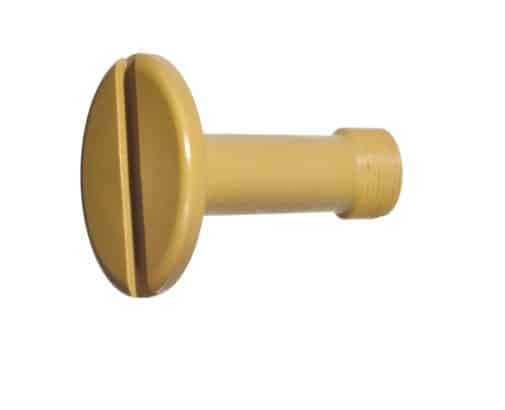
TORLON – PAI
TORLON PAI (Polyamideimide) is the highest performing thermoplastic built from the TORLON resin. Its compressive strength is double that of PEEK when unfilled, and about 30% higher than ULTEM PEI. In its medical grades, PAI offers high modulus, radiolucency, sterilization-compatibility and high wear resistance, making it ideal for components inside high performance and peristaltic pumps. PAI’s extremely low coefficient of linear thermal expansion and high creep resistance deliver excellent dimensional stability over its entire service range.
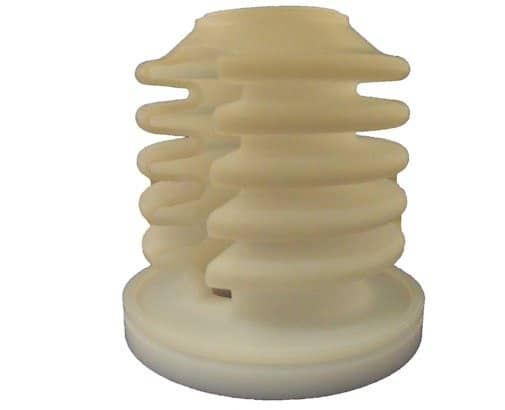
Teflon – PTFE
Teflon PTFE (Polytetrafluoroethylene) is a fluoropolymer commonly used for tubing in medical device components. PTFE has non-stick qualities, is inert to most chemicals and has the lowest coefficient of friction of any thermoplastic. It also has very good UV resistance, hot water resistance and electrical insulation even at high temperatures.
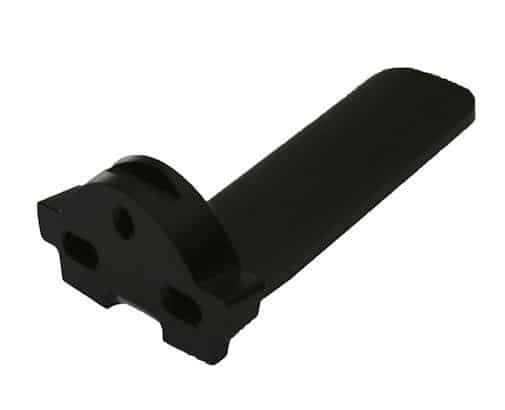
Delrin – Acetal Homopolymer
Delrin (Acetal Homopolymer) is ideal for smaller lower performance applications and acceptable for a broad range of general components in the medical industry at temperatures below 250°F (121°C). It has flexible design uses (such as in reusable injection pens), is sterilization-compatible (with limited cycles) and offers options for low friction. Delrin is also tested against relevant parts of ISO 10993 and delivers excellent dimensional stability and natural lubricity.
Want to explore our full material library?
Visit here to search our material data for more information or request a quote here.
